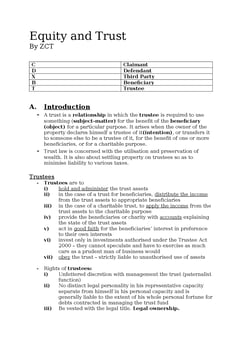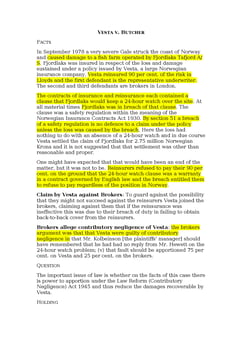Halifax Building Society (Halifax BS) v Thomas [1996] Ch 217
Judgement for the case Halifax Building Society (Halifax BS) v Thomas
Table Of Contents
Thomas defrauded Halifax Building Society into giving him a mortgage and sold the property at a high price, leaving a surplus between what Thomas owed and what was left over.
The crown obtained an order to seize Thomas’s assets.
Halifax Building Society argued that the surplus money was its own property, not Thomas’s, so that the order did not apply to it.
The court held that since the wrongdoing of the borrower could not translate the society into the owner of the entire beneficial interest in the property when the mortgage had not been set aside, the borrower was not a constructive trustee of the surplus for the Halifax Building Society.
RELATED CASES
For Further Study on Halifax Building Society (Halifax BS) v Thomas

Equity notes fully updated for recent exams at Oxford and Cambridge. Th...
Need instant answers? Our AI exam tutor is here to help.
Ask questions 🙋 Get answers 📔 It's simple 👁️👄👁️
Our AI is educated by the highest scoring students across all subjects and schools. Join hundreds of your peers today.
Get StartedSimilar Cases
Related Product Samples
These product samples contain the same concepts we cover in this case.

 Since 2010, Oxbridge Notes has been a trusted education marketplace, supplying high-quality materials from top achievers at universities like Oxford, Cambridge, LSE, Harvard, and Yale.
Since 2010, Oxbridge Notes has been a trusted education marketplace, supplying high-quality materials from top achievers at universities like Oxford, Cambridge, LSE, Harvard, and Yale.